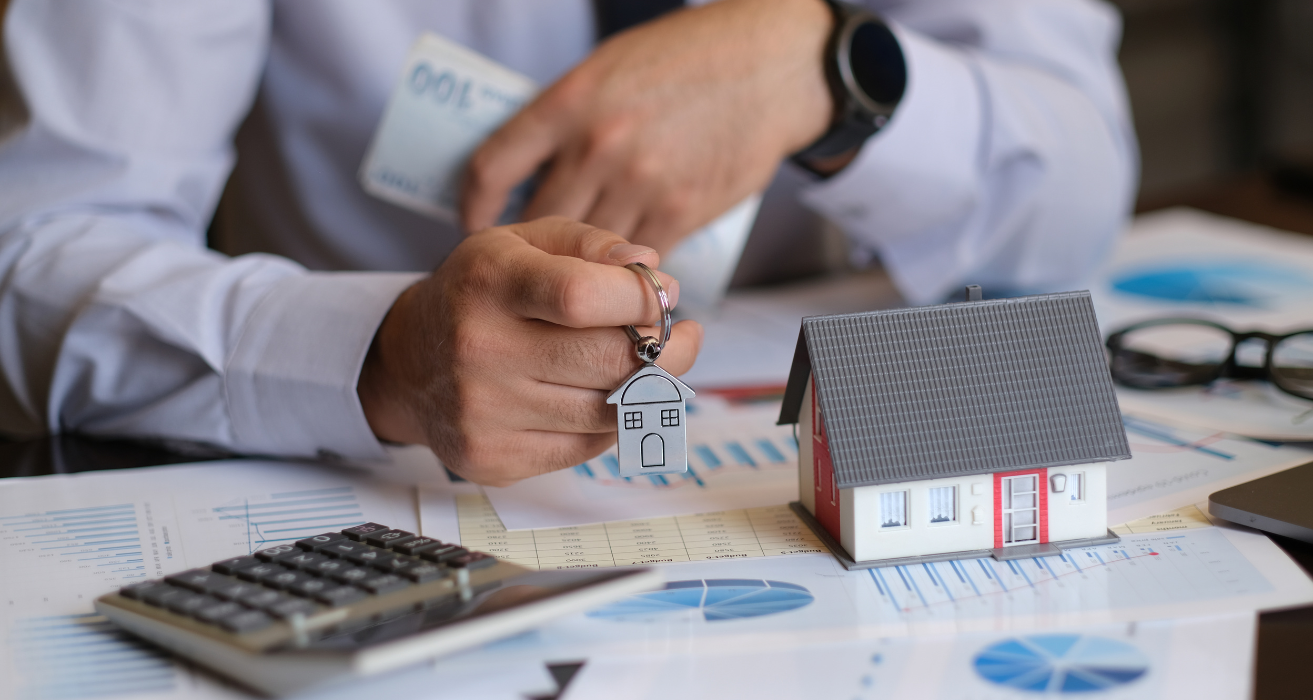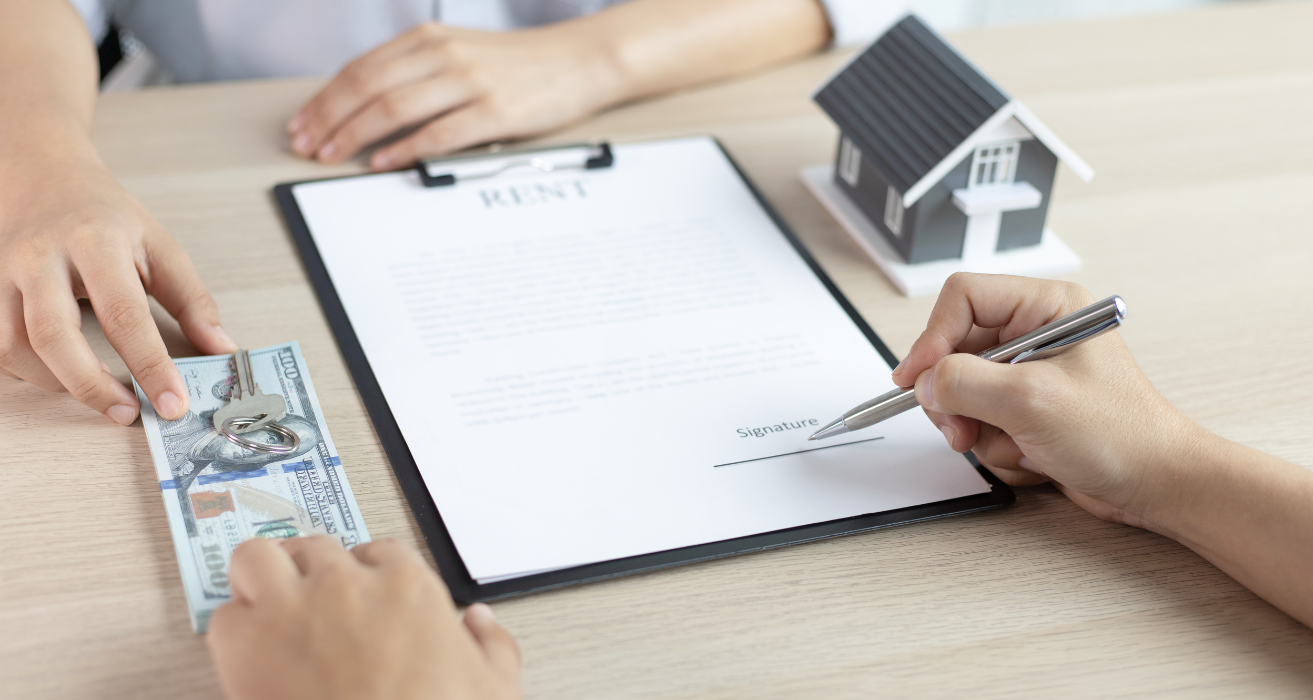How to Spot and Avoid Mortgage Fraud?
.jpg)
Buying a home is one of the most meaningful financial milestones you'll ever experience. But lurking in the background is a threat that could turn your dream into a nightmare: mortgage fraud. Whether you're a first-time homebuyer or a seasoned investor, you're not immune.
Here’s the deal:
Mortgage fraud doesn’t just hurt banks, it targets people like you. Unscrupulous actors might try to manipulate documents, hide fees, or even impersonate professionals. That’s why being informed is your strongest defense.
This guide teaches you what mortgage fraud looks like, how to identify red flags, and which actions you can take to protect yourself, in plain English and compliance-verified advice.
Key Takeaways:
- Mortgage fraud can happen to any borrower; know the warning signs.
- Watch out for pressure tactics, falsified documents, and "too good to be true" deals.
- Work only with licensed professionals. Verify NMLS IDs.
- Ask questions, request documentation, and don’t rush decisions.
- Platforms like Be My Neighbor and realpha offer safe, transparent paths to homeownership.
What is Mortgage Fraud, Exactly?
Mortgage fraud doesn’t always mean a borrower fudging numbers, sometimes, it’s the lender who’s playing dirty. Some of the most damaging scams are those committed against borrowers by unethical lenders or mortgage professionals.
This kind of fraud often involves:
- Loan stacking — pushing you into multiple loan products you don’t need.
- Inflated rates or fees — hiding markups or steering you into high-cost loans for bigger commissions.
- Falsified application info — changing your income, employment, or occupancy details without your knowledge to make the loan “fit.”
- Equity stripping schemes — where predatory lenders use aggressive tactics to trap you in debt and eventually seize your home equity.
The worst part? Many of these scams look like legitimate offers at first glance.
7 Red Flags That Should Raise Eyebrows
Not all fraud is obvious at first glance. But there are some classic warning signs:
- Guaranteed Approval — No one can guarantee a mortgage.
- Missing or Vague Loan Documents — If you’re not seeing a full Loan Estimate, walk away.
- High Pressure to Act Quickly — Legit lenders give you time.
- Requesting Payment Outside Escrow — Big red flag.
- Inconsistent Information Between Docs — Always compare your disclosures.
- Unlicensed Professionals — Use NMLS Consumer Access to verify.
- Too-Good-To-Be-True Rates or Fees — If it sounds fake, it probably is.
How to Protect Yourself?
1. Only Work with Licensed Mortgage Professionals
Always ask for the NMLS number. For example, Be My Neighbor Mortgage is licensed under NMLS #1743790.
2. Get Everything in Writing
Verbal promises are worthless. Always ask for documents to be sent over email or uploaded securely.
3. Know the Disclosures You Should Receive
- Loan Estimate (LE)
- Closing Disclosure (CD)
- Servicing Disclosure
These are required under the TILA/RESPA Integrated Disclosure Rule (TRID).
4. Review and Compare Loan Estimates
Pro Tip: Compare at least three offers and focus on APR, lender fees, and prepayment penalties.
5. Don’t Share Sensitive Info Over Email
Use encrypted platforms and avoid emailing your SSN or financial documents directly.
6. Use Trusted Platforms
Be My Neighbor and realpha are examples of platforms promoting ethical, transparent lending practices.
Conclusion: Stay Smart, Shop Safe
Mortgage fraud isn’t just a scam, it’s a threat to your financial future. But when you're equipped with the right knowledge and tools, you can move forward confidently.
That’s why we recommend platforms like realpha, which offers commission-free homebuying experiences, and Be My Neighbor, which connects borrowers with licensed, vetted mortgage professionals.
Your homeownership journey deserves transparency, safety, and integrity.
FAQs
What’s the biggest red flag in a mortgage transaction?
Any promise of "guaranteed approval" or being asked to pay upfront outside of escrow.
How can I verify that someone is licensed to offer mortgage loans?
Use NMLS Consumer Access to check their credentials.
What if I’ve already submitted information to a suspicious lender?
Contact your state regulator and the CFPB. Freeze your credit report and monitor your accounts.
Is mortgage fraud always committed by lenders?
No, it can also be borrower-driven or involve third-party professionals like appraisers or brokers.
Can I report fraud anonymously?
Yes, you can report fraud to the FBI, HUD OIG, or CFPB without disclosing your identity.
Disclosures:
- Be My Neighbor is a licensed mortgage broker, NMLS #1743790. Equal Housing Lender.
- realpha is a commission-free real estate platform. It is not a mortgage lender or broker.
- All loan terms, rates, and fees mentioned must be confirmed directly with licensed lenders.
- This guide is intended for informational purposes and does not constitute financial advice.
- Always consult with licensed mortgage professionals before making loan decisions.
Need help navigating your home financing options? Visit Be My Neighbor to get started or explore realpha for a commission-free homebuying journey.





.png)
.png)
.png)
.png)
.png)
.png)








.jpg)
.jpg)
.jpg)
.jpg)
.jpg)
.jpg)
.jpg)
.jpg)
.png)








.png)
.jpg)
.jpg)
%20(1).jpg)
.jpg)
.jpg)

.jpg)
.jpg)




-min.png)
.avif)
-min.png)
-min.png)
.jpg)
.avif)

-min.png)

.avif)
.avif)






-min.png)
-min.png)
-min.png)

-min.png)

-min-p-1080%20(1)%20(1).jpg)
-min.png)
-min.png)
.avif)
.avif)
.avif)
.avif)
.avif)
.avif)
.avif)
.avif)
.avif)
.avif)
.avif)
.avif)
.avif)
.avif)
.avif)

.avif)
.avif)
.avif)
.avif)
.avif)
.avif)
.avif)
.avif)
.avif)
.avif)



